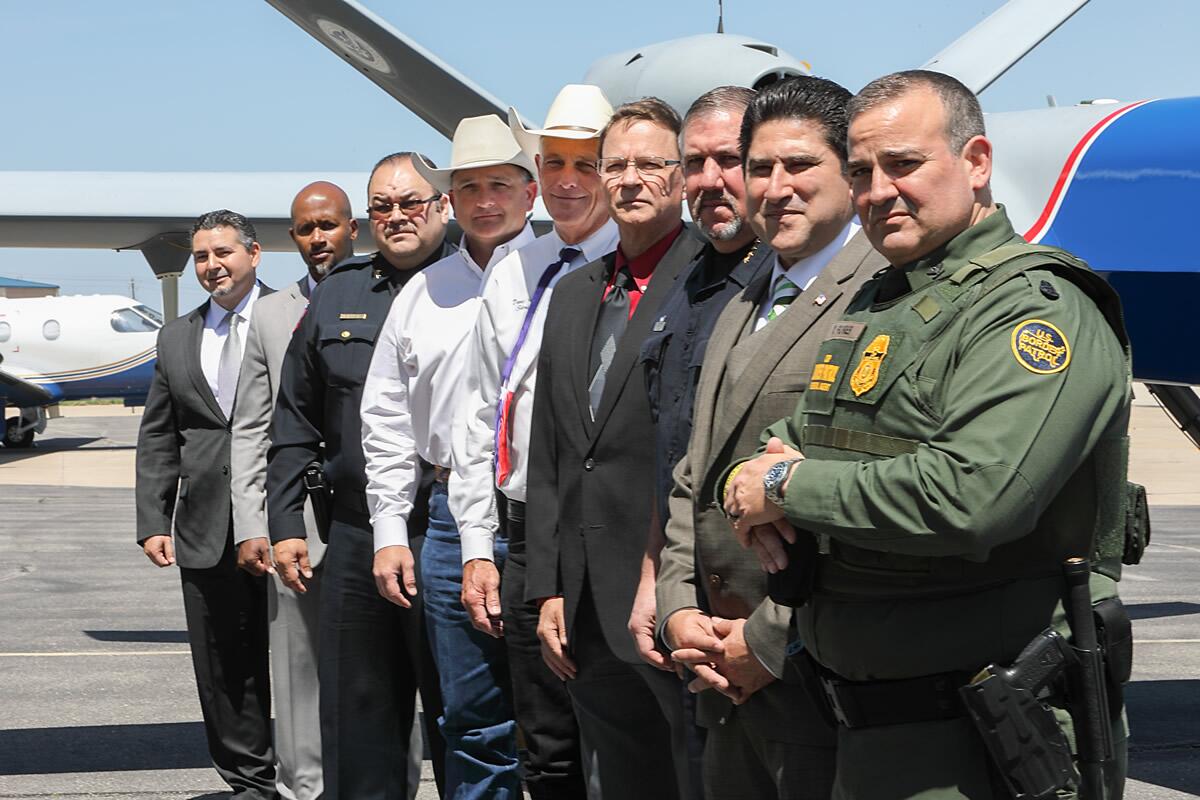Overview
For U.S. Immigration and Customs Enforcement (ICE) to achieve its critical, national security mission, its workforce must succeed in building and maintaining effective partnerships with private sector stakeholders and other law enforcement agencies throughout the country and around the world. Whether it’s at the local, state, national or international level, each agency in such a partnership is strengthened by the resources, experience and expertise of the other and, ultimately, it is the American people who benefit.
Partnerships the work reflects the fact that, contrary to what is too-often reported, law enforcement agencies understand the operational value and public benefit to finding common ground on which to collaborate, cooperate and share information that is vital to securing our borders and solving complex criminal investigations.
Enforcement and Removal Operations
ERO builds effective partnerships by earning trust in the communities they serve and collaborating with local sheriff departments, jails and prisons. ERO works to establish vital information sharing programs which help safely identify individuals who lack legal standing to remain in the country, protecting cities and towns across the country from preventable criminal activity.
287(g)
In field offices across the country, officers within ICE’s ERO directorate continue training and supporting local law enforcement partners pursuant to Section 287(g) of the Immigration and Nationality Act, which authorizes ICE to enter into agreements with state and local law enforcement agencies. These agreements permit designated officers at the local level to perform limited immigration law enforcement functions.
ICE personnel across the country deploy what’s known as jail enforcement and warrant service officer models, operating only inside stipulated state and local detention facilities and limited to reviewing information regarding those individuals already in custody.
In these models, ICE trains and certifies specific, designated state and local law enforcement officers to perform only those immigration functions that are established in the agreement with that agency. It’s been a successful tool for nearly 15 years, resulting in more than one hundred agreements, stronger partnerships, and raising our shared awareness of dangerous, removable individuals with criminal histories who might otherwise remain unknown to us and a continued danger to public safety.
Transnational Law Enforcement Operations Unit
The Transnational Law Enforcement Operations Unit (TLEO) partners with U.S. and international law enforcement agencies to combat cross-border threats to public safety and national security. TLEO develops and disseminates actionable information via investigative referrals on criminals and security threats who are violating immigration laws to conduct, or as a result of conducting, criminal or violent activities. Using such operational liaisons is a mutually beneficial practice, strengthening an interagency whole-of-government approach, leveraging bi-lateral and multi-lateral engagement with our global partners to fulfill the objectives of the U.S. National Security Strategy.
INTERPOL Liaisons
ERO has three liaison officers assigned to the INTERPOL United States National Central Bureau (USNCB) in Washington, D.C. USNCB provides real-time analytical intelligence to law enforcement, facilitating transnational investigative efforts with 194 INTERPOL member countries. The liaisons analyze incoming INTERPOL notices for fugitives and other individuals of interest in foreign criminal investigations, generating referrals for subjects that may be located within the United States. The liaisons assist with extraditions to and from the United States, and work closely with ERO Fugitive Operations, ERO Mobile Criminal Alien Teams, and HSI Field Offices to assist with the location of at-large immigration violators wanted abroad. In addition, ICE ERO has one liaison who serves as the technical advisor to the INTERPOL General Secretariat Global Outreach and Regional Support Directorate in Lyon, France.
EUROPOL Liaison
ERO’s EUROPOL liaison works closely with law enforcement representatives of European Union member countries, third party partners and other global law enforcement entities to jointly identify criminal and public safety threats seeking to cross borders either to elude law enforcement or commit crimes or other acts threatening life and property. Posted within EUROPOL in The Hague, The Netherlands, this liaison also serves as a local representative for all ERO matters in support of ICE Homeland Security Investigations as well as representing ICE in matters relating to the U.S. Embassy in The Hague.
U.S. Customs and Border Protection National Targeting Center (NTC) Liaison
This partnership effort ensures ERO representation in NTC's collaborative environment and the ability to query person-centric data unique to the NTC, as well as increased real-time situational awareness of potential threats and targets of interest.
United States Marshals Service HQ National Sex Offender Targeting Center (NSOTC) Liaison
The ICE ERO NSOTC liaison delivers immigration enforcement subject matter expertise to the NSOTC and the ICE Angel Watch Center, facilitating the identification, arrest, prosecution, and removal of aliens who are compliant and non-compliant sex offenders. They work in partnership with the Department of Justice’s Office of Sex Offender Sentencing, Monitoring, Apprehending, Registering, and Tracking, and the National Center for Missing and Exploited Children to maintain a foundational understanding of legislation, policies and external equities related to sex offenders and at-risk populations in the U.S and abroad.
Homeland Security Investigations (HSI)
HSI leverages existing relationships to build new partnerships in both the private sector and the law enforcement community to strengthen its efforts to investigate global criminal enterprises that violate U.S. laws.
HSI collaborates with law enforcement agencies, non-governmental organizations (NGOs) and private industry to generate leads, identify, rescue and support victims of crime and prevent threats to the homeland.
Border Enforcement Security Task Force (BEST)
Led by HSI, the Border Enforcement Security Task Force (BEST) model is another highly successful initiative that relies on significant partnerships within the broader law enforcement community. BESTs partner with over 100 federal, state, local, and tribal law enforcement agencies, including U.S. Customs and Border Protection (CBP), Federal Bureau of Investigations (FBI), Drug Enforcement Administration (DEA), Bureau Alcohol, Tobacco, Firearms, and Explosives (ATF), U.S. Marshals Service, and United States Postal Inspection Service (USPIS).
BESTs gather officers from hundreds of different law enforcement agencies under a unified mission to dismantle existing and emerging transnational criminal organizations by employing the full range of law enforcement resources in an effort to identify, investigate and disrupt these networks wherever we encounter them.
These multi-discipline enforcement teams are ready to investigate any criminal activity with a nexus to the northern or southern border, as well as our country’s air and seaports. The BEST strategy eliminates barriers between federal and local enforcement activity and increases cooperation between international partners in multinational criminal investigations.
They work in conjunction with other investigative, analytic, and information sharing entities and programs including federal high intensity drug trafficking areas, organized crime and drug enforcement task forces, state and metropolitan area fusion centers, and the FBI’s joint terrorism task forces.
National Intellectual Property Rights Coordination Center (IPR Center)
The HSI-led IPR Center stands at the forefront of America's response to intellectual property theft and its enforcement of international trade laws. It is among the country’s premier examples of law enforcement cooperation and is a model of the value such partnerships bring to the fight.
The IPR Center brings together 25 federal and international agencies in a task force setting using a three-pronged approach to combat intellectual property and commercial fraud crimes: interdiction, investigation, and outreach.
Successful investigations into fraud, IP theft and counterfeit goods are hallmarks of the good work championed and achieved by IPR Center partners. Through outreach and public engagement, the IPR Center raises the public’s awareness of the dangers of trade-based violations, while serving as a public point of contact for future investigations.
Cyber Crimes Center – Child Exploitation Investigations
Collaborating with law enforcement partners around the country and the world, HSI’s Cyber Crimes Center , brings together an array of resources to combat child exploitation. HSI is a founding member of the Virtual Global Taskforce, whose mission is to safeguard children from online sexual exploitation and abuse, and other forms of transnational child sexual exploitation through innovative, collaborative global law enforcement strategies. HSI participates on all 61 locally led Internet Crimes Against Children task forces across the United States.
HSI is the U.S. representative to the Interpol Specialist Group on Crimes Against Children, a working group that facilitates and enhances the investigation of sexual crimes against children and maintains a close working relationship with the National Center for Missing & Exploited Children to combat child exploitation.
Human Exploitation Rescue Operative (HERO) Child Rescue Corps Program
HSI, in partnership with U.S. Special Operations Command and the National Association to Protect Children established and executes the HERO Corps program to battle child exploitation and fulfill America’s responsibility to its veterans by recruiting and training wounded, ill and injured military veterans to work as computer forensic analysts for HSI.
The HERO program trains, equips and embeds HERO participants into computer forensic intern positions within HSI field offices around the country to support law enforcement in the areas of child exploitation investigation, child victim identification, traveling child sex offenders, and digital forensics.
Human Rights Violators and War Crimes Center
HSI operates the Human Rights Violators and War Crimes Center (HRVWCC), established in 2008 to further the U.S. government’s efforts to identify, locate, and prosecute human rights violators found in the United States and/or subject to U.S. laws.
Today, the HRVWCC has grown to include more than 50 law enforcement professionals from various federal and international partners, including non-governmental organizations, dedicated to investigating and prosecuting human rights violators and war criminals.
Document and Benefit Fraud Task Force (DBFTF)
Led by HSI, the Document and Benefit Fraud Task Forces combine HSI's unique criminal and administrative authorities with a variety of tools and authorities from other law enforcement agencies to achieve focused, high-impact criminal prosecutions and financial seizures by investigating immigration document and benefit fraud. DBFTF partners include U.S Citizenship and Immigration Services Office of Fraud Detection and National Security, U.S. Department of State Diplomatic Security Service, U.S. Department of Labor Office of Inspector General, and other federal, state and local law enforcement entities.
By forming a unified law enforcement body, DBFTFs work more intelligently and efficiently to combat fraud. The task forces bring together the expertise of numerous agencies and departments to achieve more complex, cross-cutting investigations. Task force investigations relate to immigration benefit fraud, other fraud schemes involving aliens (taxes, bank loans, health care, etc.), identity theft schemes and document fraud (immigration documents, passports, Social Security cards, state identity documents, driver’s licenses, etc.).
As of September 2020 there are 36 DBFTFs in major cities throughout the United States and in Saipan.


